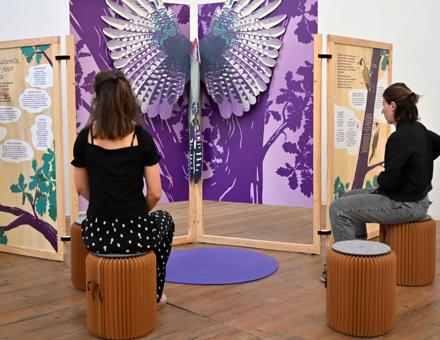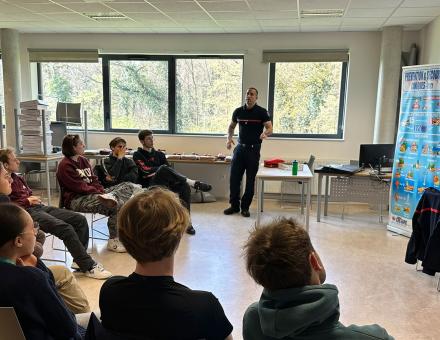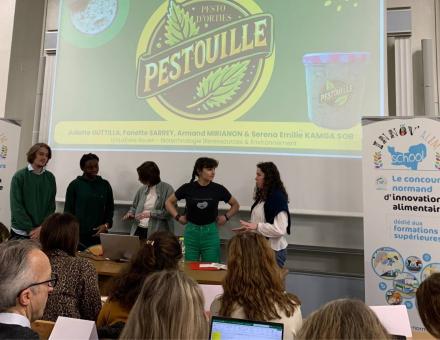The apprentice students of the three engineering courses of UniLaSalle Beauvais worked together on the theme of mineral resources and their utility in our daily life.
For a long time reserved for students in the Geosciences, Environment Day has been open to new audiences for the past three years. Student-engineers in Agronomy & Agro-industries and in Agri-food & Health by apprenticeship have been integrated into this event devoted to conferences on the theme of the environment. "We wanted to create more links between the apprentices of our three engineering programs; this event was a good opportunity to do so," explains Michaël Goujon, a associate professor in hydrogeology and organizer of the day.
The evolution towards a transdisciplinary theme - but still linked to environmental issues - opened the way to an unprecedented collaboration between students from the different courses offered at UniLaSalle. "We were already used to working with students in Agri-food & Health, but never with geologists," says Dylian, currently in his third year of Agronomy & Agro-industries by apprenticeship.
The work in question? The creation of a scientific poster in teams on a theme defined beforehand.
This year, the 124 students worked on mineral resources and their use in our daily lives. 21 posters - 1 per team - were produced, divided into three sub-categories:
- Energy resources (7 posters)
- Metallic resources (7 posters)
- Non-metallic resources (7 posters)
"Each team was made up of 2 or 3 students in Agronomy, 2 students in Food & Health, and one student in Geosciences & Environment, by drawing lots to avoid affinity groups and to get the students out of their comfort zone. Mixing specialties forced them to work with people who are not from their world," explains Michaël Goujon. An opening appreciated by the students. "We chose lead and its impact on health. It was Raphaël, the group's geologist, who enlightened us on the origin of the contamination and gave us a geological vision that we didn't have," says Pauline, in her third year of Agri-food & Health by apprenticeship. "Having to talk about health forced us to do research that we would not have done on our own," adds her teammate Clément, a student in the Agronomy and Agro-industries program.
Another point of satisfaction for the students is the format of the work required. Although they are used to group work, the student-engineers appreciated the "competition" format. Each day before the event, a sub-theme was highlighted. The 3 posters that received the most votes qualified for the "final". The jury, composed of the Environment Day speakers, then voted for the three best posters. The awards ceremony took place at the end of the Environment Day. This was a great way to showcase, in a formal setting, the students who have been working on this topic since November.









